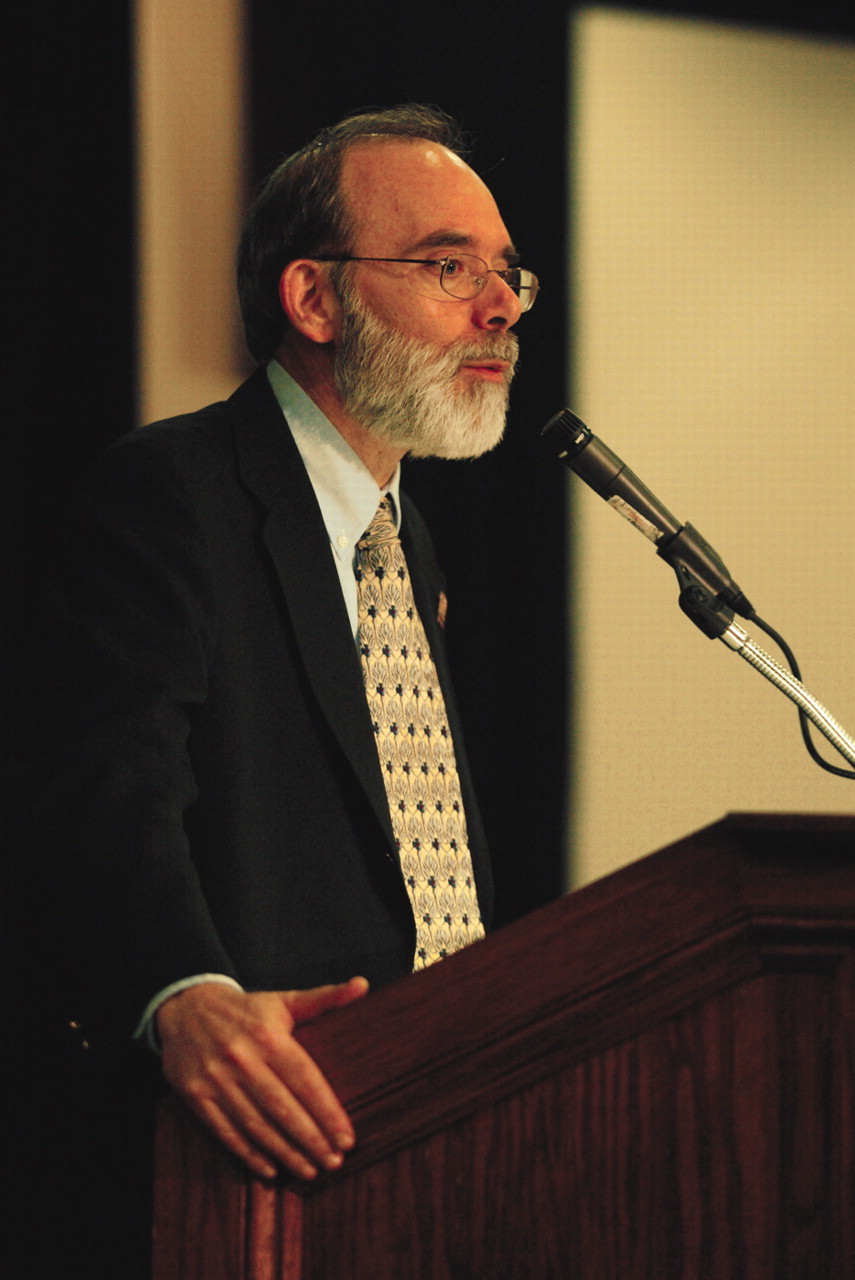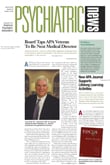Heading into the final stretch of 2002, APA stands ready to address the challenges confronting it with a new medical director, a more efficient governing body, and a renewed commitment to fight for mental health parity for all Americans.
This was the message delivered by APA President Paul Appelbaum, M.D., to the leaders and members of APA’s components at the plenary session of the 2002 fall component meetings last month in Washington, D.C.
Appelbaum took advantage of the plenary session to apprise APA leaders of important changes within the organization.
New Structure, New Leadership
One of the changes involved the fall component meetings themselves—this year’s attendees were part of a reorganized component structure that involved the reorganization of some components and the sunsetting of others (Psychiatric News, April 19).
Appelbaum said that APA’s Assembly structure may undergo changes as well. “In keeping with the needs of the times, we are willing to revamp, modernize, and equip APA to deal with the future,” Appelbaum said.
Even the structure of APA’s Board of Trustees is likely to change, Appelbaum noted. He said that at the Board meeting that concluded just prior to the plenary session, Trustees had voted to eliminate one of the two vice-president positions and combine the secretary and treasurer positions (see
page 6). The Board referred the policy to the Bylaws Committee to draft the necessary amendments and report back to the Board.
Also that morning, Trustees had taken the final steps to approve the appointment of the psychiatrist they had selected at their June meeting to become APA’s next medical director—James Scully, M.D. (see
page 1).
Scully, who is the Alexander G. Donald Professor and chair of the department of neuropsychiatry and behavioral science at the University of South Carolina School of Medicine, will become APA’s medical director on January 1, 2003.
When Scully took the podium amid a standing ovation, he promised to devote his efforts to building upon the accomplishments made by APA over the past years.
“I’ll need your help as we work together to help APA continue to be a great organization,” Scully said. “You take care of the patients of America, and we will take care of you.”
What Does APA Do for You?
When Appelbaum is asked “Why should I be an APA member?” or “What can APA do for me?,” he is ready with an answer.
“You all know that there is a parity bill now in play on Capitol Hill,” he said. Although the House and Senate have both supported different versions of the bill, and President George W. Bush has endorsed parity, “things seems stuck where they are.”
Appelbaum said that to move the bill in a positive direction, APA’s leaders and staff had set out to reverse the editorial position of the Washington Post on mental health parity—and succeeded.
On September 3 he joined APA Medical Director Steve Mirin, M.D., and Executive Director of the American Psychiatric Institute on Research and Education Darrel Regier, M.D., Ph.D., for a crucial meeting with the Post. Expectations on APA’s side were low, Appelbaum noted.
“The hometown paper of every member of Congress” has twice in the last five years editorialized against mental health parity, Appelbaum noted. However, APA leaders were ready to present their case after being briefed by Laurie Oseran, director of APA’s Division of Communications and Marketing, and prepared by staff of APA’s Division of Government Relations in a “mock grilling” on the questions they were expected to encounter in the newspaper’s headquarters.
Anticipating that they might meet with just one of the editorial staff members, they were pleasantly surprised when six walked into the room, along with one of the Post’s mental health reporters with whom APA staff had worked before. The meeting was scheduled to last for an hour but stretched into an hour and a half.
“We had a no-holds-barred discussion in which Post staff asked questions such as ‘How do you diagnose mental illness?,’ ‘How do you tell if it’s real?,’ and ‘Do you have a science base like the rest of medicine does?’ ”
The editorial staff expressed concern about the cost of parity—this had been the newspaper’s primary reason for opposing parity in the past.
APA staff told them that according to the Congressional Budget Office, parity as proposed in two bills now before Congress would increase annual health insurance costs by about 1 percent. Yet this 1 percent increase would translate into a 33 percent to 50 percent increase in available dollars for mental health services.
Regier, who has conducted a great deal of research on the costs and benefits of mental health parity, provided the Post staff with evidence to support APA’s argument that mental health parity is a winning proposition for all.
No one could have predicted what happened next. On September 9, Appelbaum said, “the Washington Post, based on the arguments we presented, announced in writing that it was changing its position on mental health parity” (see box on page 8). “We still have another institution to deal with, and that is the U.S. Congress.”
He continued, “I present this to you as an example of what APA can do. We can change the ways that people think about mental illness and change the policies in this country at both the federal and state levels.”
New Freedom Initiative
Plenary attendees got a glimpse into the inner workings of a new initiative to evaluate and reform the mental health system when guest speaker Anil Godbole, M.D., a member of the President’s New Freedom Commission on Mental Health, took the podium. Godbole is an APA member and chair of the department of psychiatry at the Advocate Illinois Masonic Medical Center.
Last April President Bush addressed a crowd at the University of New Mexico in Albuquerque about the many obstacles to quality care for people with mental illness and announced the appointment of the commission. This group is charged with addressing some of these problems, such as stigma and a fragmented mental health service delivery system, by April 2003.
This was no small task, Godbole admitted. “The charge is very extensive, and the time frame limited,” he said, referring to the fact that the commission had a year to assess the entire mental health system at the federal, state, and local levels and make recommendations for improvement.
“We are hoping to achieve system reform,” he said.
The commission will ultimately recommend improvements that enable adults with serious mental illnesses and children with serious emotional disturbances to “live, work, learn, and participate fully in their communities,” Godbole said.
The bulk of the work has been undertaken by a number of committees focusing on specific areas, such as children and families, homelessness, and evidenced-based practices, of which Godbole is chair.
Godbole said that APA leaders have already contributed to the commission’s work, but that there was still a great deal of opportunity for input. APA’s leadership, Godbole said, could improve the commission’s understanding of mental health services data, evidence-based practice, and quality standards of performance measures, among other topics.
Institute Previewed
Before wrapping up the plenary session, Appelbaum introduced Stephen Goldfinger, M.D., who represented the Scientific Program Committee of the 2002 Institute on Psychiatric Services.
Goldfinger described the institute, which will be held at the Palmer House Hilton Hotel in Chicago from October 9 to 13, as “warm and accessible.” He highlighted the value of the meeting for psychiatrists-in-training, who benefit from the clinical focus of the meeting and face-to-face interaction with speakers.
More information about the President’s New Freedom Commission on Mental Health can be found on the Web at www.mentalhealthcommission.gov. ▪

